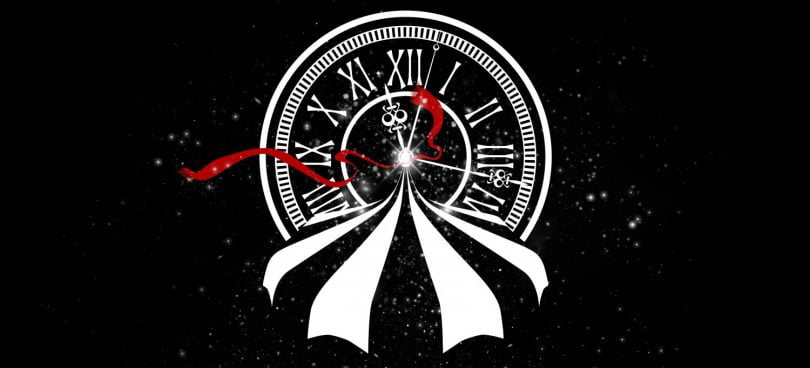“The circus arrives without warning. No announcements precede it… It is simply there, when yesterday it was not.”
On the 13th October, 1886, a mysterious circus appears in London; a seductive, dazzling world of black and white that opens at nightfall and closes at dawn. It is a Victorian fairy tale of the most imaginative wonder, which becomes more than just words on a page, but a world in which we simply never want to leave.
It is truly challenging to try and summarise Erin Morgenstern’s debut novel. The plot of The Night Circus is embroiled in secrecy and suspense, and thus to say a single thing feels as if I’m telling you who is next to die in ‘Game of Thrones’. But I can mention that the lead protagonists, Celia and Marco, have an unfortunate start to life, but both find something unexpected in the colourless world that beats beneath colourless skies. It is also acceptable to speak of magic, as this is the theme which pivots forward many of the vital elements of the plot, but alas, all else must be left securely affixed in the bindings of the book, simply waiting to be read without my narrative.
As for the genre of the novel, it is fair to say that it is a quilted blanket of variety; it draws upon elements of the gothic, fantasy, romance, Romanticism, fairy tales, magical realism, with an age-old battle thrown in for good measure too. There are moments which would make a wonderful Tim Burton adaptation, and others reminiscent of the fairy tale touch of a live-action Disney movie. That being said, it is important to note that this novel is not YA – although it is often misconstrued as such. Although it makes for an easy read, the plot is fast-paced and detailed, with occasional adult scenes and sophisticated descriptions. It also is not as flowery as it may appear. Despite the novel being undeniably breath-taking, not every page is made of silk and covered in blooming flowers. There is heartbreak too, and there are struggles and abusive relationships – in other words, a grittiness to the outside world that makes the circus a place of even more intense enchantment, not just for the characters, but also the readers. Which brings me neatly onto my next point: Le Cirque des Rêves.
Through the simplicity of a Romantically dark, dream-like world, Morgenstern is the architect of a novel which finds itself within the pantheon of Fantasy greats, with the ability to challenge the most esteemed novels – such as J. K. Rowling’s Harry Potter franchise – with respect to the suspension of disbelief. As a reader, we do not only see the circus through a narrative, but in a way we become the circus; we begin to breathe in black and white stripes, turning the pages with a warm familiarity. To a degree, the novel does something wholly unique: we don’t just feel like a ghost following around the main protagonists, but we feel like an attendee at the circus, and occasionally we feel as if we’re watching through the circus’ eyes too. It is a novel like a maze of mirrors, but there is nothing discombobulating, only carefully layered perspectives which permit us to see every angle, and delve deeper into the soul of the setting. What is also unique about The Night Circus is that it’s perfectly acceptable to claim that the circus itself is your favourite character, although in a novel with so many developed characters, it is challenging to pick just one favourite.
But on the note of characters, I feel it important to mention the lead heroine: Celia Bowen. In a world that is screaming out for strong female leads who are so much more than a love interest, The Night Circus offers us a character who is intelligent, brave, passionate, and entirely girl-crush worthy. There are other fantastic female characters too, such as Isobel, Poppet, and the contortionist Tsukiko, but for me, Celia is something special; one of those characters we carry with us from the very first introduction, or at least, a character I have always carried with me.
The Night Circus is a novel I read in 2012, a year after its release. I was in Gran Canara with my grandparents at the time, sat in an opulent garden when I thumbed through the very first pages. I think it must have been when I reached Part II: Illumination when I realised that this was my favourite book. It simply had everything I was looking for, and although five years have passed, I still carry it very firmly in my heart, like a treasured memory that never fades. And it’s something I like to share too, from forcing my favourite teachers to read it back when I was at school, to giving a copy to my best friend as a sort of test – I had only just met her, and was convinced if she hated it then she wasn’t the future BFF for me. Although I’ve always loved books, I never understood how you could have a soulful connection to one, until I stumbled across Morgenstern’s masterpiece.
So to conclude, Erin Morgenstern’s debut novel is a spectacular read from the enigmatic first line to the perfectly conclusive last, and I highly recommend purchasing a copy to read on one of these beautiful autumnal nights in a cosy nook, with a hot spiced drink in your hand, your phone switched off, and your body entirely submerged in a pyramid of cushions.









